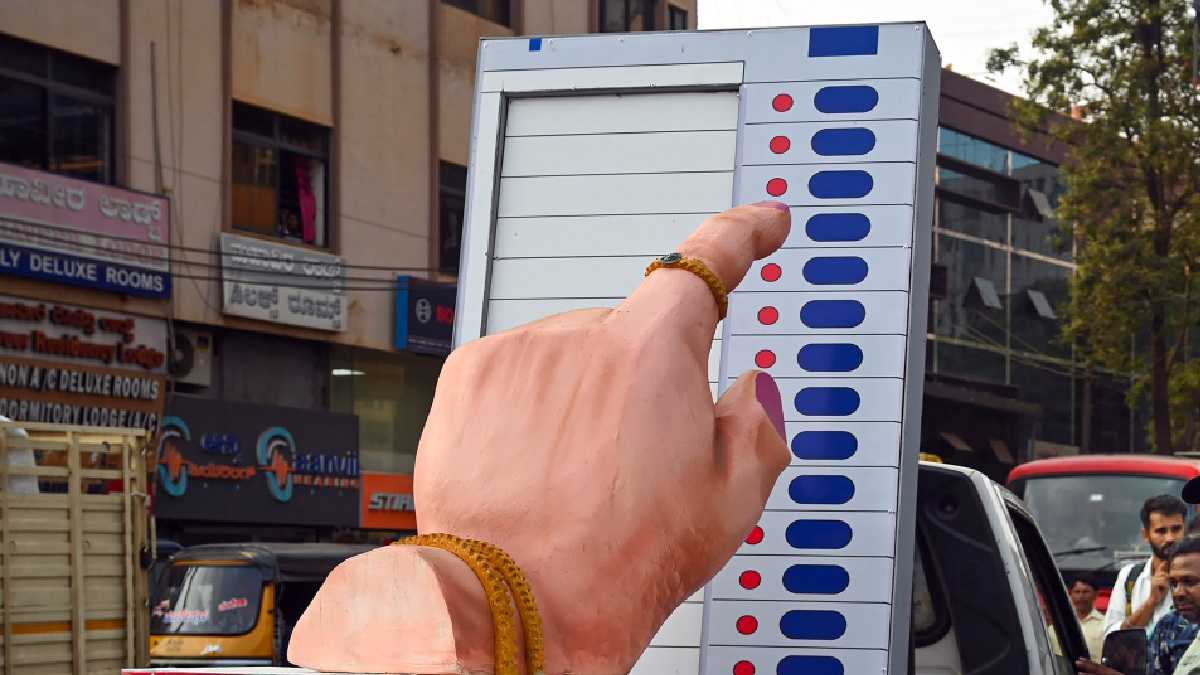
Explained: What is Article 371?
New Delhi, Sep 08: Amid apprehensions about Article 371, Home Minister Amit Shah on Sunday re affirmed that the government has no plans to revoke the article that grants special provisions to the North-Eastern Region after Jammu and Kashmir were split into two union territories.

"After abrogation of Article 370 in Jammu and Kashmir, there were attempts to misinform and misguide the people of North East that Article 371 would also be scrapped by the Centre", he said.
"I have clarified in Parliament that this is not going to happen and I am saying it again today in the presence of eight chief ministers of North East that the Centre will not touch Article 371", Shah added.
Apart from Jammu and Kashmir, special provisions under Article 371 are also accorded to northeast states to preserve their tribal culture.
Ranging from Article 371-A to Article 371-J, this Article gives special provisions for the states of Maharashtra, Gujarat, Nagaland, Assam, Manipur, Andhra Pradesh, Sikkim, Mizoram, Arunachal Pradesh, Goa and Karnataka.

Article 371 - Maharashtra and Gujarat
Governors of the states of Maharashtra and Gujarat are given special responsibilities to set up development boards in regions such as Vidarbha, Marathwada, Kutchh etc.
Article 371A- Nagaland
Article 371A states that no act of Parliament shall apply to the state of Nagaland in respect of the religious or social practices of the Nagas, its customary law and procedure, administration of civil and criminal justice involving decisions according to Naga customary law and ownership and transfer of land and its resources.
Article
371B-
Assam
The
President
may
provide
for
the
constitution
and
functions
of
a
committee
of
the
Assembly
consisting
of
members
elected
from
the
state's
tribal
areas.
Article 371C- Manipur
The President may provide for the constitution of a committee of elected members from the Hill areas in the Assembly, and entrust "special responsibility" to the Governor to ensure its proper functioning.
Article 371E and D- Andhra Pradesh and Telangana
President must ensure "equitable opportunities and facilities" in "public employment and education to people from different parts of the state". He may require the state government to organise "any class or classes of posts in a civil service of, or any class or classes of civil posts under, the State into different local cadres for different parts of the State". He has similar powers vis-à-vis admissions in educational institutions.
Article 371F-Sikkim
Under the The Art 371(F), "the Governor shall have special responsibility for peace and for an equitable arrangement for ensuring the social and economic advancement of different sections of the population of Sikkim... and the Governor of Sikkim shall, subject to such directions as the President may, from time to time, deem fit to issue, act in his discretion".
There is another provision by which "neither the Supreme Court nor any other court shall have jurisdiction in respect of any dispute or other matter arising out of any treaty, agreement, engagement or other similar instrument relating to Sikkim...."
Article 371G - Mizoram
Article 371(G) of the Constitution states that the Parliament cannot decide on the matters of the religious and social practices of the Mizos, civil and criminal law of the land, land ownership transfer, and customary law procedure without the consent of the Assembly.
Article 371H - Arunachal Pradesh
The governor has special powers on the state's law and order situation and can overrule the chief minister's decision on the basis of this provision.
Article 371I- Goa
Article 371I deals with Goa, but it does not include any provision that can be deemed 'special'.
Article 371J- Karnataka
Article 371J grants special status to six backward districts of Hyderabad-Karnataka region. The special provision requires that a separate development board be established for these regions and also ensures local reservation in education and government jobs.


 Click it and Unblock the Notifications
Click it and Unblock the Notifications






















![PAN Card for children: Process to apply, documents required, benefits & more [Explained] PAN Card for children: Process to apply, documents required, benefits & more [Explained]](https://imagesvs.oneindia.com/fit-in/165x95/img/2017/03/pan-card1-24-1490330673.jpg)










